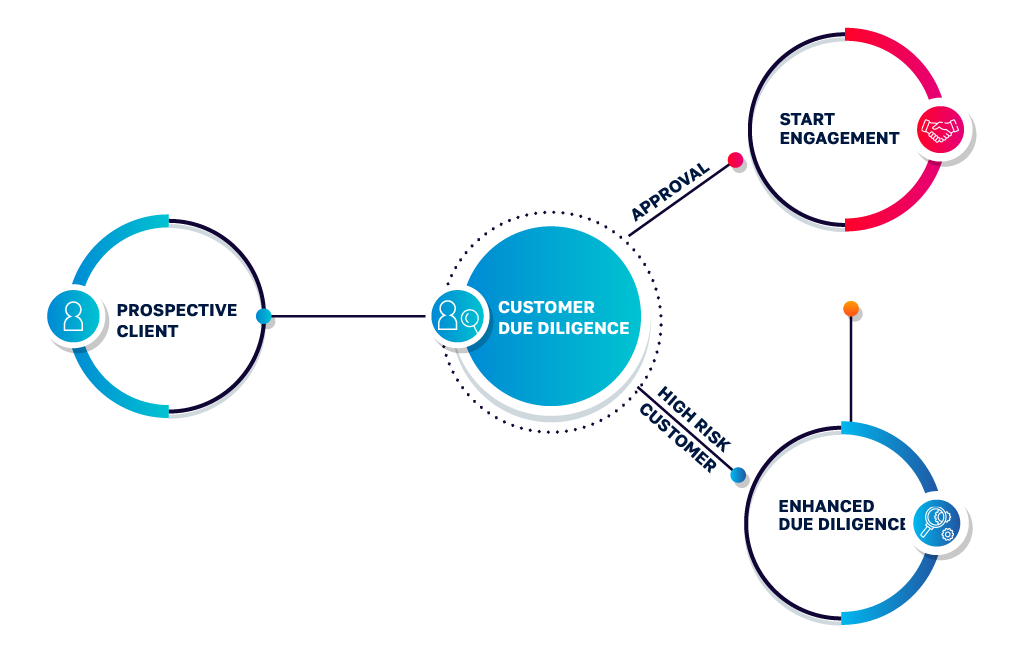Enhanced Due Diligence (EDD)

Enhanced Due Diligence (EDD) is a component of Anti-Money Laundering (AML) legislation. Further, the Financial Action Task Force (FATF) delineates the parameters of EDD and specifies the entities and individuals to which it should be applied.
When is it required:
EDD is an intricate, resource hungry and time-intensive exercise. Hence, adopting a risk-based approach is deemed optimal, allowing banks to balance risk and compliance matters with cost.
Some instances where EDD is triggered:
- When the counterparty is a “Politically Exposed Person” (PEP)
- Special Interest Persons (SIPs): Individuals previously linked to financial crimes or currently under investigation.
- Customers from sanctioned or embargoed countries, or individuals personally sanctioned or embargoed.
- Customers under negative media scrutiny.
- Transactions displaying apparent unusualness or economic impracticality.
- Customers from countries listed as high-risk by the FATF, or those on grey or blacklist.
- High-net-worth clients.
- Clients involved in complex transactions with obscured beneficial ownership

